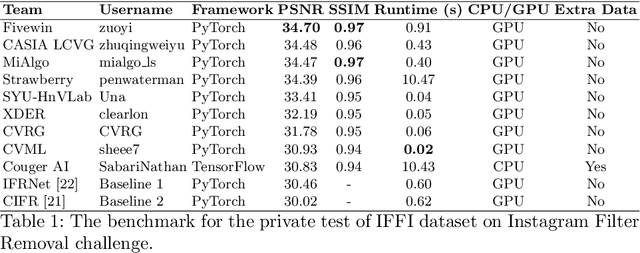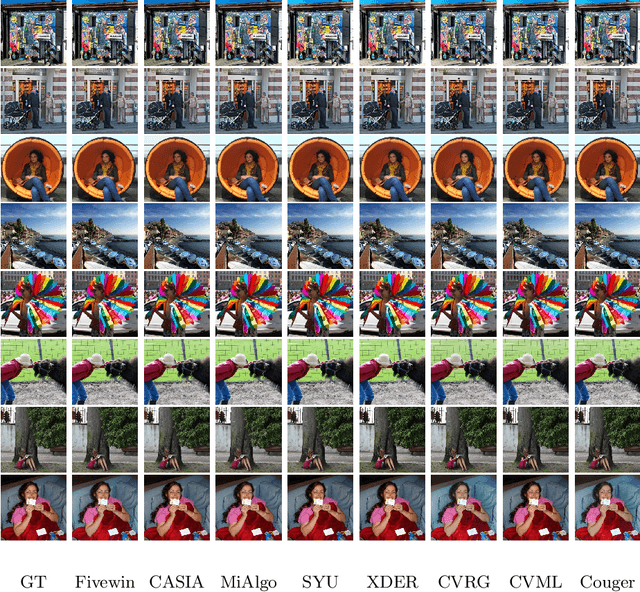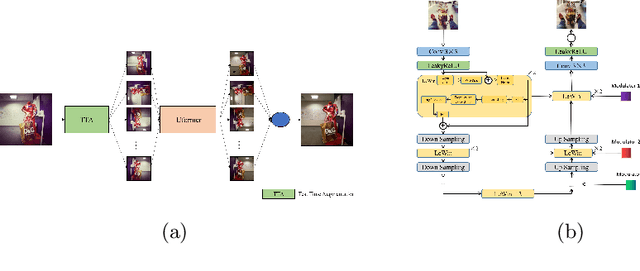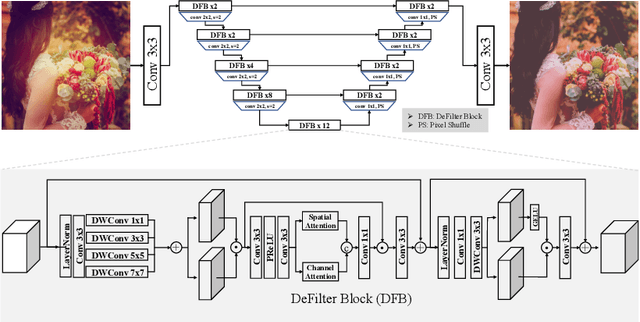Han-Cheol Ryu
J-Net: Improved U-Net for Terahertz Image Super-Resolution
Dec 04, 2023Abstract:Terahertz (THz) waves are electromagnetic waves in the 0.1 to 10 THz frequency range, and THz imaging is utilized in a range of applications, including security inspections, biomedical fields, and the non-destructive examination of materials. However, THz images have low resolution due to the long wavelength of THz waves. Therefore, improving the resolution of THz images is one of the current hot research topics. We propose a novel network architecture called J-Net which is improved version of U-Net to solve the THz image super-resolution. It employs the simple baseline blocks which can extract low resolution (LR) image features and learn the mapping of LR images to highresolution (HR) images efficiently. All training was conducted using the DIV2K+Flickr2K dataset, and we employed the peak signal-to-noise ratio (PSNR) for quantitative comparison. In our comparisons with other THz image super-resolution methods, JNet achieved a PSNR of 32.52 dB, surpassing other techniques by more than 1 dB. J-Net also demonstrates superior performance on real THz images compared to other methods. Experiments show that the proposed J-Net achieves better PSNR and visual improvement compared with other THz image super-resolution methods.
AIM 2022 Challenge on Instagram Filter Removal: Methods and Results
Oct 17, 2022



Abstract:This paper introduces the methods and the results of AIM 2022 challenge on Instagram Filter Removal. Social media filters transform the images by consecutive non-linear operations, and the feature maps of the original content may be interpolated into a different domain. This reduces the overall performance of the recent deep learning strategies. The main goal of this challenge is to produce realistic and visually plausible images where the impact of the filters applied is mitigated while preserving the content. The proposed solutions are ranked in terms of the PSNR value with respect to the original images. There are two prior studies on this task as the baseline, and a total of 9 teams have competed in the final phase of the challenge. The comparison of qualitative results of the proposed solutions and the benchmark for the challenge are presented in this report.
CAIR: Fast and Lightweight Multi-Scale Color Attention Network for Instagram Filter Removal
Aug 30, 2022



Abstract:Image restoration is an important and challenging task in computer vision. Reverting a filtered image to its original image is helpful in various computer vision tasks. We employ a nonlinear activation function free network (NAFNet) for a fast and lightweight model and add a color attention module that extracts useful color information for better accuracy. We propose an accurate, fast, lightweight network with multi-scale and color attention for Instagram filter removal (CAIR). Experiment results show that the proposed CAIR outperforms existing Instagram filter removal networks in fast and lightweight ways, about 11$\times$ faster and 2.4$\times$ lighter while exceeding 3.69 dB PSNR on IFFI dataset. CAIR can successfully remove the Instagram filter with high quality and restore color information in qualitative results. The source code and pretrained weights are available at \url{https://github.com/HnV-Lab/CAIR}.
 Add to Chrome
Add to Chrome Add to Firefox
Add to Firefox Add to Edge
Add to Edge